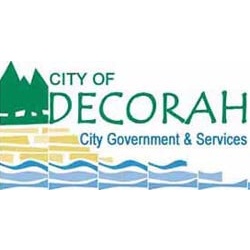
Ask Mr. Answer Person: "What impact would buying Alliant Energy's facilities have on the City of Decorah's bonding capacity?"
(Jerry asks Mr. Answer Person: "What impact will there be on the City of Decorah's bonding capacity if it goes ahead and pays Alliant Energy for the facilities in Decorah?"):
Mr. Answer Person says: "This has been a popular question in Decorah in recent weeks. It's the first time I can remember anyone asking about 'bonding capacity!' So pretend you're in an Economics 101 class and get ready to write down some notes.
Under state law, municipalities are legally limited to issuing bonds totaling five percent of the total property valuation within their city limits. This fiscal year, that means the City of Decorah has a legal bonding limit of $25.5 million. Of course, the limit changes every year, usually going higher, but based on whatever the total value is.
Right now, Decorah City Administrator Chad Bird says 'We're in pretty strong shape.' The City of Decorah is repaying $5.6 million in bonds--most of it to pay for the sewer and water project along Highway 9 heading up to the airport, but also two other bond issues for fire engine purchases. In other words, Decorah can borrow almost $20 million without exceeding its bonding limit.
But it is more complicated than that (of course!). There are two kinds of bonds Iowa cities can issue--'general obligation bonds,' which are backed by the city's property tax collections and its 'full force and reputation,' and revenue bonds, which are backed by the revenues an operation like an electric utility would receive. For the most part, general obligation bonds must have voter approval, while revenue bonds might not.
In fact, state code allows cities to borrow up to $700,000 without holding a referendum--sort of. A 'reverse referendum' can be held if voters create a petition and get the required number of signatures to get the issue on the ballot.
If the May 1st referendum passes, Decorah City Council members would have to figure out what they wanted to do--go ahead with an application to the IUB or put the issue on hold for awhile. If the city council decides to hit "pause," no referendum is necessary. If it decides to spend more than $700,000 to pursue an IUB application, the bonding issue would have to be on the ballot."
Site designed and maintained by Iroc Web Design Services©.
Your Small Business Web Design Solutions.™


